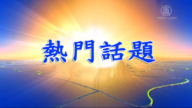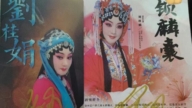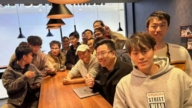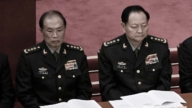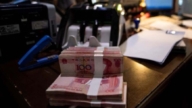【新唐人2012年2月7日訊】中共總理溫家寶日前在廣東農村考察時表示,要搞好村民自治和村委會村民直選。此前2月1號,廣東汕尾的的烏坎村舉行了村民代表的選舉,受到海內外高度關注,但也引起了中共保守派反彈。溫家寶這次講話被外界解讀,是力挺廣東省委書記汪洋樹立烏坎選舉樣板。
溫家寶在陪同德國總理默克爾訪問廣東之後,2月4號來到廣州市白雲區江高鎮水瀝村與農民座談,溫家寶說,依靠村民自治搞好農村社會管理,這是唯一正確的道路。
《新華社》引述溫家寶的話說:現在普遍存在的問題是甚麼呢?是亂佔農民耕地,由此引發群體性事件。問題的根源在於,土地作為農民的財產,這個權利沒有得到應有保障。
山東法律學者牟傳珩表示,中國農村的土地名義上是集體所有制,但在法律上卻是虛擬空泛的,不能夠落實到每一個農民的實體上。
山東法律學者牟傳珩:「中國現在最主要的問題是土地制度的問題,也就是土地私有化這個問題不得到解決的話,那麼,土地永遠被基層權力者以集體所有的名義,來剝奪農民的利益,這個不可避免的。」
溫家寶在座談中表示,村民自治是《村民委員會組織法》規定的。做好村委會直選,最基本的是要有嚴格的法律法規,同時要有公開、公正和透明的程序。
中國首位自薦當選人大代表的姚立法表示,根據了解的情況,全國70多萬個村的村委會選舉幾乎都是不合法的。
姚立法:「解決中國農民的選舉問題從根本上來講要修改法律,中國關於村委會換屆選舉法律《村民委員會組織法》是典型的一個惡法,比清朝末年制定的法律、比民國政府制定的法律都要反動,它從法律上本身就沒有保障農民的選舉權和被選舉權。」
去年,廣東烏坎村數千村民舉行示威,抗議掌權40年的村委會主任薛昌私自倒賣了660畝集體土地,以及操縱村委會選舉。村民們趕走村委幹部、實行自治,結果整個村莊被武警部隊封鎖。
經過持續幾個月的抗議,最終當局讓步,烏坎村民獲准今年3月1號以一人一票選村委,並於2月1號投票選出了11人組成的選舉委員會。
西方媒體認為烏坎選舉是中共執政以來人民第一次自由直選,為中國民主進程「樹立了楷模」。英國《金融時報》評論說,「這場極不尋常的中國民主試驗的成敗,可能對他的政治抱負產生重大影響。」
烏坎村選舉引起網民熱烈議論,而中共保守派擔心,烏坎可能引發全國其他地區效仿。《環球時報》2月3號發表題為《外媒拔高烏坎選舉很蹊蹺》的評論。
《華爾街日報》指出,溫家寶4號的講話似乎是支持汪洋的一個信號。汪洋在處理烏坎事件上,一反中共強力鎮壓的做法。
前《陝西省電視臺》記者馬曉明表示,有些人擔心烏坎選舉是假民主,不過,如果真是騙局,民眾還會起來反抗的。
廣東省委書記汪洋上個月表示,他希望烏坎為「改進全廣東的村級治理」提供一個樣板。溫家寶2月4號重提鄧小平南巡講話:「不改革開放只能是死路一條」。外界分析指出,汪洋推出的烏坎模式牽動中共黨內高層的權力鬥爭。
新唐人記者、常春、李元翰、孫寧採訪報導。
Wen Jiabao’s Rural Election Talks Back up Wang Yang
The Chinese Communist Party (CCP)’s Premier Wen Jiabao
gave a speech while inspecting rural areas of Guangdong
Wen spoke on the villagers’ autonomy
and holding the villager committee elections well.
On February 1st, Wukan village in Shanwei, Guangdong,
held an election of villager representatives.
The election drew high attentions in China and at overseas,
provoking a rebound from the CCP’s conservatives.
Wen ‘s latest speech was interpreted as firmly supporting
the CCP Secretary of Guangdong Province, Wang Yang.
Wang was deemed to set up a Wukan election model.
After accompanying Chancellor Angela Merkel’s visit to
Guangdong, Wen Jiabao held talks with local farmers.
On February 4, Wen visited Jianggao Town in Guangzhou.
In his talks with local farmers, Wen affirmed, villager’s
autonomy is the only right path for good rural management.
CCP official media Xinhua News Agency quoted Wen:
“What’s the commonly existing problem?
The arbitrary occupation of farmlands and
the consequent mass protests.
The core of the issue is land rights. The land belongs to
farmers, their right to own land should be properly protected.”
Shandong-based legal scholar, Mu Chuanheng, says
nominally, China’s rural lands are of collective ownership.
Yet legally, it isvague. Ownership cannot really
go to each individual farmer.
Mu Chuanheng (legal scholar, Shandong):
“Now China’s main problem is its land system.
That is, if the land privatization issue cannot be resolved,
the land will always be utilized by grassroots officials.
In the name of collective ownership, the deprivation of
farmers’ interests over land will be inevitable."
Wen Jiabao says, the autonomy of villagers is specified in
the Organic Law of the Villagers Committees of the PRC.
A good, direct villager committee election is based on strict
laws and regulations, and an open, fair, transparent process.
The first self-nominated deputy to the people’s congress,
Yao Lifa, discloses more related information.
According to Yao Lifa, almost all villager committee elections
over 70,000 plus villages across China are illegal.
Yao Lifa: “The fundamental way out in resolving
the Chinese farmers’ election issue is to amend the laws.
Organic Law of the Villagers Committees of the PRC
is a typical evil law.
It is worse than the laws enacted in the Qing dynasty
and by the Republic of China.
It doesn’t protect farmers’ right to vote or stand for election."
In the 2011 Wukan protests, thousands of villagers accused
a villager committee director of privately reselling lands.
Over 40 years, the head traded 660 acres of collective lands
secretly and manipulated villager committee elections.
Wukan villagers chased out CCP village committee cadres,
establishing self autonomy.
The whole village was thus besieged by armed police.
The CCP local authorities finally yielded
upon Wukan villagers’ months of protests.
The villagers were granted a one man—one vote election
for the villager committee, to be held on March 1.
An 11-member Electoral Commission was elected on Feb.1.
Western media reviewed the Wukan village election as
the first free election since the CCP’s rule in China.
The West viewed Wukan as “setting an example"
for China’s democratic process.
UK’s Financial Times commented, “The success or failure of
this very unusual experiment in Chinese democracycould
have a major effect on Wang Yang’s political ambitions."
The Wukan village election aroused heated discussions
among Chinese netizens.
The CCP’s conservative forces had worries that Wukan may
inspire other regions in China to copy their example.
Feb. 3—CCP mouthpiece, Global Times, issued an article:
“Foreign media overstating the Wukan elections is very odd”.
The Wall Street Journal said Wen Jiabao’s speech on Feb. 4
appears to support Wang Yang.
The way Wang tackled the Wukan protests is in contrast to
the CCP’s usual technique of brutal repression.
Former Shanxi TV reporter, Ma Xiaoming, says some people
worry that the Wukan elections is a sham democracy.
Ma says if it is found to be a scam, the people would rise up.
This January Wang Yang said he hoped Wukan set a model
for “improving Guangdong’s village-level governance.”
Wen Jiabao repeated Deng Xiaoping’s southern tour speech
Saying, without reform and opening, a dead end will result.
Analysts note that Wang Yang’s Wukan mode
affected high-level power struggle inside the CCP.
NTD reporters Chang Chun, Li Yuanhan and Sun Ning


